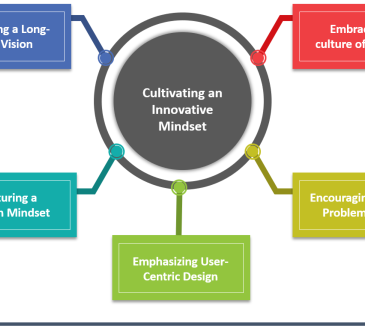
Online betting is one of the quickest growing industries that has recently spread on the Internet. Billions of dollars change hands each year on virtual betting sites, from poker tables streamed direct from Las Vegas to apps for betting on ball games and boxing.
Life is increasingly driven by open algorithms built to predict ours; meanwhile, artificial intelligence (AI) has emerged as the defining technology of our time, transforming how we search, shop, drive — and write.
When two of the hottest trends, AI and gambling, meet each other, it’s a bold new experiment: AI gambling agents.
These are software-enabled systems that can be used to play, bet, and handle strategies for gambling by themselves. They are backed by entrepreneurs, coders, and investors who imagine a future in which humans do not sit down at the digital poker table — they send their algorithms to do the betting instead.
The Rise of AI at the Casino
The concept isn’t entirely new. Programmers have created bots to play chess, poker, and other strategy games for years.
- In 2017, an AI system built by Carnegie Mellon University beat professional players in heads-up, no-limit Texas Hold’em poker.
- What was once an object of research curiosity has now become a commercial endeavor.
Startups and lone coders are scrambling to program AI that can outwit poker jockeys as they peruse online gambling sites, learning fold probabilities, risk optimization, and a level of playing discipline few humans can master.
The pitch makes sense: while human players are subject to emotions, AI agents rely solely on mathematics and data.
The People Behind the Push
Meet the new crop of entrepreneurs betting on the idea:
- Former Wall Street Quants and Hedge Fund Traders
- View gambling platforms as just another market.
- See a roulette wheel not as entertainment, but as a source of data.
- Build bots to calculate probabilities in real time, detect positive expected value ratios, and exploit inefficiencies on sites.
- Tech Entrepreneurs
- Believe AI gambling agents are the natural evolution of gaming.
- Focus less on guaranteed profits and more on pushing machine learning to its limits.
- Envision “super gamblers”—AI characters that can learn, evolve, and even amuse human users by playing alongside them.
- Venture Capitalists
- Provide the financial fuel.
- Flush with cash from AI startup successes, some are investing in gambling-related projects.
- Spot opportunities in AI-powered platforms that could attract millions of users, whether in legal markets or gray areas where innovation outpaces regulation.
Why Gambling Is Different
At first glance, AI gambling agents resemble fintech tools—after all, algorithms already trade stocks, manage investments, and pick fantasy sports lineups. But gambling has unique complications:
- Legality
- Many countries strictly regulate online gambling.
- Regulators may question whether machines distort odds in games meant for humans.
- If an AI bot can reliably beat players at poker, platforms may need to ban or detect such bots to protect casual users.
- Ethics
- Problem gambling is already widespread.
- Critics fear AI could worsen addiction by distancing players from consequences.
- Example: A user lets an AI gamble for them without grasping the risks, leading to substantial losses.
- Sustainability
- Casinos profit because most players lose.
- If AI agents start winning too often, operators may deactivate them or change the rules to protect revenue.
A Gray Market Emerges
Despite obstacles, demand is rising.
- Programmers share tips in online forums and Discord groups on building bots that evade detection.
- Some claim to have built:
- Blackjack bots that digitally count cards.
- Poker bots with superhuman bluffing abilities.
Meanwhile, semi-legitimate startups are appearing:
- Marketed as “AI gambling assistants”, not full autonomous players.
- Apps promise features such as:
- Recommending sports bets.
- Advising players on when to fold or raise in poker.
The line between assistance and automation is razor-thin, but the appetite is undeniable.
The Future of AI in Gambling
The next stage depends on how regulators, casinos, and consumers respond:
- If regulators crack down → AI gambling agents may be driven underground, powering a shadow economy.
- If markets adopt them → The industry could transform, much like finance did with algorithmic trading.
- Possible future scenario → AI-only tournaments where algorithms compete as proxies for their programmers.
For casinos, AI could also be a tool rather than a threat:
- Already used to detect fraud and problem gamblers.
- Could evolve into sanctioned AI players as part of the gaming experience.
A Collision of Cultures
The story of AI gambling agents is not only technological but also cultural.
- Gambling is traditionally wrapped in myth and superstition: lucky streaks, cursed numbers, hot hands.
- AI disrupts this mythology. Machines don’t get nervous, don’t celebrate victories, and don’t care.
For entrepreneurs, that’s the allure:
- They see gambling as mathematics, stripped of romance.
- The thrill lies in building an AI that can play—and win—not in the gamble itself.
For others, it raises questions:
- If machines play the games, what’s left for humans?
- Could casinos evolve into arenas for algorithmic combat?
- Or will people still log in, seeking the rush that only comes when risk feels personal?
Conclusion
It feels inevitable that AI gambling agents will emerge, powered by the convergence of two booming industries.
- They may become mainstream tools, underground curiosities, or even banned technologies.
- Whatever the outcome, they will reshape the future of online gaming.
For now, the people building them remain on the fringe—startups, coders, and investors working in the shadows of casinos and code repositories.
As gambling and AI continue to expand on unpredictable trajectories, one thing is clear:
The bets being placed today are no longer at the poker table — they’re on the future of play itself.




